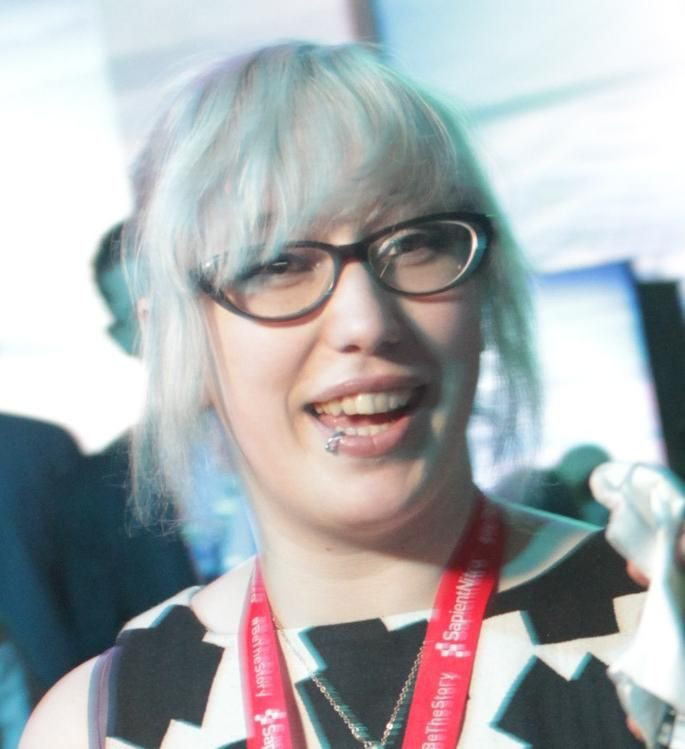What Is The GamerGate Scandal? Female Game Developer Flees Home Amid Online Threats

Brianna Wu, a prominent female video game developer, fled her home Saturday because of violent, sexualized threats posted on Twitter that included her home address. Wu shared the threatening tweets on her own Twitter account Saturday night.
The police just came by. Husband and I are going somewhere safe. Remember, #gamergate isn't about attacking women. pic.twitter.com/ZU6oEVxMGL
- Brianna Wu (@Spacekatgal) October 11, 2014
Wu, who serves as the head of development at game studio Giant Spacekat, came forward in July about the harrassment directed at her as a well-known female developer in a male-dominated industry. She's the latest victim of a misogynistic lynch mob that targets women who raise the issue, some of them appearing to do it under the mantle of "gamergate," which is ostensibly focused on the ethics of gaming journalism.
Quinn personally became the subject of unwanted attention when her ex-boyfriend, Eron Gjoni posted a number of ugly allegations about the female developer online, including personal photos and accusations Quinn had been involved in a sexual relationship with Kotaku journalist Nathan Grayson. Kotaku Editor-in-Chief Stephen Totilo admitted the two had dated, but said Grayson hadn’t reviewed Quinn’s game. This was later confirmed, but Quinn still became a target, and gamers grew angry over the unproven accusations her relationship with Grayson led to positive coverage of her game.
As a result, Quinn turned into the victim of an aggressive attack on her personal life, which included threats of rape, hacking attempts, at least one death threat and doxxing, or the Internet-based practice of publishing private information about an individual. Those who attempted to defend Quinn from the attacks were given the label “social justice warriors," quickly escalating into a virulent attack against Quinn and the ethics of video game journalism. Journalists who refused to cover what seemed to be a very public examination of a woman’s private life were labeled gaming journalism conspirators, and a black list was even circulated by gamergate supporters.
Actor Adam Baldwin, 52, known for his past roles as Agent John Casey in NBC series “Chuck” and Jayne Cobb in sci-fi series “Firefly,” was the first to use the gamergate hashtag on Twitter in August. Baldwin continues to be an active participant in the online debate, accusing gaming journalism sites like Kotaku of using collusion tactics and alleged unethical conduct. On Sunday, Baldwin demanded an apology from Brianna Wu on Twitter for assuming her threats were from gamergate supporters, and claimed she couldn't prove who was behind the online attacks.
.@Spacekatgal U admitted to assuming, which was exploited by anti- #GamerGate’rs & their subs’q harrassments. U won’t apologize for that?
- Adam Baldwin (@AdamBaldwin) October 12, 2014@Spacekatgal Cool. Please appreciate you’re not unique in receiving internet threats. LE advises keeping silent, which you chose not to…
- Adam Baldwin (@AdamBaldwin) October 12, 2014Baldwin also told Wu she wasn’t “unique in receiving Internet threats” and she “chose not to” keep silent.
Wu attempted to make peace online and reminded her followers that “#gamergate isn’t about attacking women.”
@adambaldwin Let's try to bring some civility to #gamergate by setting an example for the people that listen to us.
- Brianna Wu (@Spacekatgal) October 12, 2014
Well-known feminist and video blogger Anita Sarkeesian was also pulled into the gamergate controversy after she released a video about women and misogyny in video games shortly after gamergate began. Sarkeesian, who has more than 157,000 followers on Twitter, regularly posts videos on YouTube that question the many roles of men and women in popular video games like “Grand Theft Auto 5.” She was also forced from her home in late August as the result of death threats.
These may seem isolated incidents, but sadly, they’re not. In 2013, GameSpot writer Carolyn Petit wrote an article about the negative way she felt women were depicted in Rockstar Games’ action-adventure game “GTA 5,” and a petition was started to have her fired.
Since the beginning of the gamergate scandal, a number of anonymous online users continue to rally behind the movement as an excuse to harass females over the Internet. Some may be genuinely concerned with the ethics of video game journalists and their relationships with developers, but the loudest supporters seem to be those who are uneasy with the growing popularity of females on the development side.
As the debate rages, the conversation surrounding women and their role as video game characters and as developers continues to spur numerous heated arguments about what seems like a simple issue. Women should be allowed to voice their opinions without fearing for their lives, and we as Internet users should remember to treat everyone, even those with whom we disagree, as human beings.
© Copyright IBTimes 2025. All rights reserved.






















